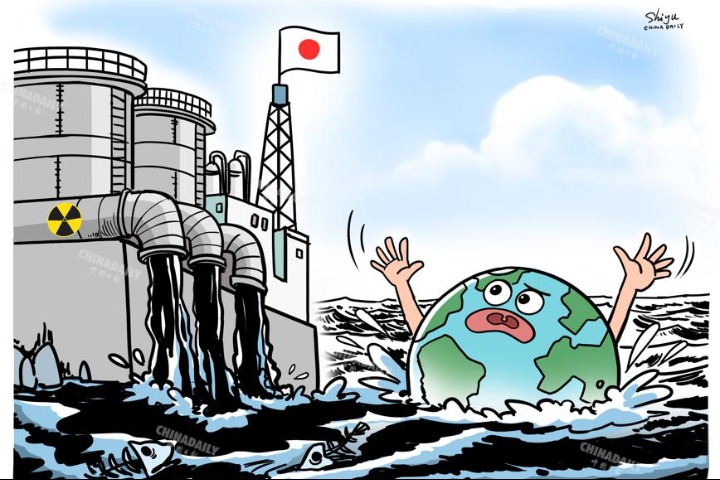Western politicians should forget the dead cats, focus on their real problems


The West's post-truth politics and "dead-catting" of perceived political foes is poisoning the global political landscape, and curtailing a future of cooperation, understanding and recognizing differences, and rationally working together for solutions favorable to all stakeholders.
Though many would argue that post-truth politics has been around for years, with the rise of the internet and social media, its use has become ever more venomous and corrosive, sinking deeper into the wider political narrative than just being whispers in shady halls of power.
This new, more toxic strain of political culture-post-truth, post-fact, post-reality, post-reason-appeals in most part to emotions and has no truck with empiricism.
In a recent report on the Xinjiang Uygur autonomous region, CNN described that children had been separated from their parents in the region. Despite the reporter having a great deal of experience and knowledge of China, no effort was made to clarify whether this is actually an exceptional case in the country or something widespread. Instead, the air is thick with allegations that these people have been "targeted", rather than the parents making the decision to leave their children behind (temporarily) of their own free will to work in cities.
No mention was made in the report about China's nearly 70 million "left-behind" or "stay-at-home" children, who remain in the villages of their birth looked after by other family members while their parents migrate to cities for work. This is a byproduct of China's great urbanization-a challenge that people across the country face, not just those in Xinjiang.
But why would CNN report not mention that? There is more emotional resonance with the audience if they feel what is being reported on is a "special" case "targeting" individuals, rather than a situation which sadly affects millions of people across the country irrespective of ethnicity.
On his last day in office on Jan 19, previous US secretary of state Mike Pompeo "officially determined" China had committed "crimes against humanity" and "genocide" in Xinjiang. Based on scant and tenuous "evidence" and spurious reports from extremely questionable sources, Pompeo did what is known in political circles as "dropping a dead cat".
"Dead-catting" involves introducing a scandalous or shocking topic to divert people's attention from real issues. Perhaps the decline of US hegemony or domestic racial inequality and injustice?
It has been used with great effect by Australian political strategist Lynton Crosby in both Australian and British politics, influencing (many would say unfairly) election campaigns and Brexit.
Incumbent British Prime Minister Boris Johnson, for whom Crosby has worked on campaigns, said in 2013: "There is one thing that is absolutely certain about throwing a dead cat on the dining room table-and I don't mean that people will be outraged, alarmed, disgusted. That is true, but irrelevant. The key point, says my Australian friend, is that everyone will shout, 'Jeez, mate, there's a dead cat on the table!' In other words, they will be talking about the dead cat-the thing you want them to talk about-and they will not be talking about the issue that has been causing you so much grief."
There are certain words in the English language that are combustible. Genocide is one of them. It is a term not to be used lightly and without strong and thorough evidence. Yet some Western politicians and media outlets seem willing to toss these dead cats, these hand grenades, around seemingly for fun, diverting attention from the important challenges they should be addressing on their own front doorstep.
It is a dangerous game and instead of informing and educating their audience, it ends up poisoning them. Perhaps a cynic might say that is exactly what they want to do.
The author is an editor with China Daily.









































